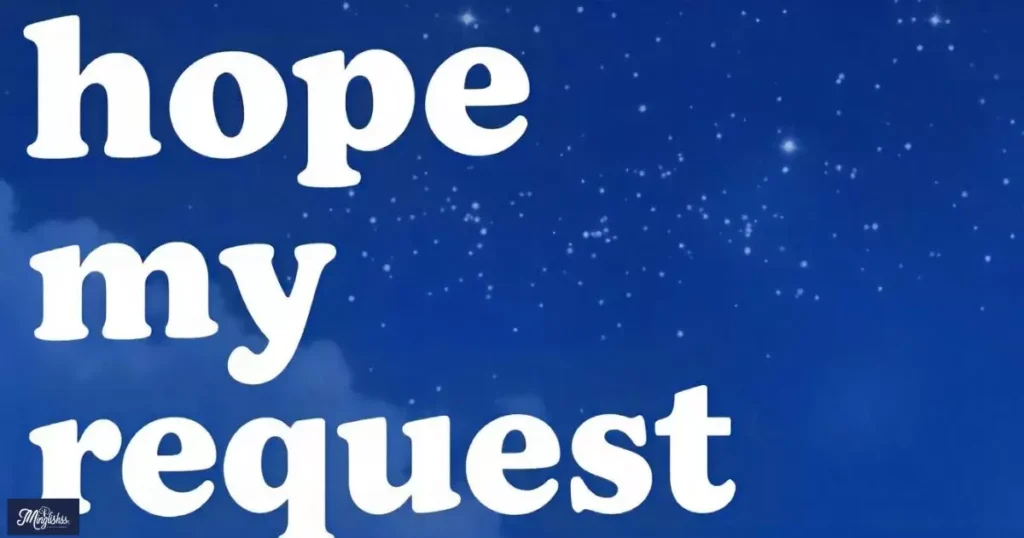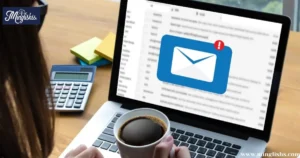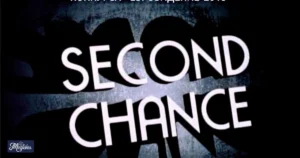“Describe refined alternatives to convey apologies for interrupting in a professional setting.”
In professional communication, how you apologize for an interruption can impact the tone and effectiveness of your message. While “Sorry to bother you” is a commonly used phrase, there are various formal alternatives that can convey a similar sentiment with a polished touch. This blog will explore refined expressions that can help you apologize for interruptions while maintaining professionalism and respect.
Enhance your communication by adopting these sophisticated alternatives. Whether you’re sending an email, making a call, or engaging in face-to-face interactions, using precise and respectful language can improve the clarity and professionalism of your communication.
We will cover 25 formal ways to say “Sorry to bother you,” each accompanied by scenarios, explanations, and additional tips. By applying these alternatives, you can refine your communication skills and make a positive impression in professional settings.
25 Formal Alternatives to “Sorry to Bother You”
1. “I apologize for the interruption.”
Scenario: Jessica is interrupting her manager to ask a quick question and wants to express her regret for the disruption.
Subject Explanation: This phrase offers a straightforward apology for the interruption, acknowledging the disruption caused.
Additional Tip: Use this when you need to make a brief interruption and want to clearly apologize for the inconvenience.
2. “I hope I’m not intruding.”
Scenario: Michael is calling a colleague during a busy period and wants to ensure he is not intruding on their work.
Subject Explanation: This phrase conveys sensitivity to the recipient’s time and workspace, suggesting that the caller is mindful of the potential intrusion.
Additional Tip: Ideal for situations where you’re unsure if your contact is available and you want to express consideration for their schedule.
3. “I regret the interruption.”
Scenario: Laura needs to ask for an urgent update and wants to acknowledge her regret for interrupting her team’s workflow.
Subject Explanation: This phrase expresses regret over the interruption, conveying a sense of formality and respect.
Additional Tip: Use this when wanting to convey a more formal tone of regret for the interruption.
4. “I apologize for any inconvenience caused.”
Scenario: Tom is reaching out to a client with a follow-up and wants to acknowledge any potential inconvenience caused by his message.
Subject Explanation: This phrase not only apologizes for the interruption but also acknowledges any inconvenience it might have caused.
Additional Tip: Suitable for situations where the interruption could potentially cause inconvenience to the recipient.
5. “I hope this message finds you well despite the interruption.”
Scenario: Emily is sending an email to a busy executive and wants to acknowledge the timing of her message.
Subject Explanation: This phrase combines a polite inquiry about the recipient’s well-being with an acknowledgment of the interruption.
Additional Tip: Use this when sending messages to individuals with busy schedules and you want to express sensitivity to their time.
6. “I appreciate your patience with this matter.”
Scenario: Daniel is following up on a request and wants to thank the recipient for their patience despite the interruption.
Subject Explanation: This phrase shows appreciation for the recipient’s patience and understanding regarding the interruption.
Additional Tip: Ideal for follow-ups where you want to acknowledge and thank the recipient for their patience.
7. “I hope I’m not catching you at a busy time.”
Scenario: Rachel is reaching out to a colleague and wants to express consideration for their current workload.
Subject Explanation: This phrase indicates that you are aware of the recipient’s potential busyness and are sensitive to their schedule.
Additional Tip: Use this when contacting someone who may be occupied, showing respect for their time.
8. “I apologize if this is an inconvenience.”
Scenario: Alex is sending a time-sensitive request and wants to acknowledge any potential inconvenience caused.
Subject Explanation: This phrase addresses the possibility of inconvenience, showing consideration for the recipient’s situation.
Additional Tip: Suitable for scenarios where the nature of the request might cause inconvenience and you want to express understanding.
9. “I regret any disruption this may have caused.”

Scenario: Claire is making a quick inquiry and wants to express regret for any disruption to her colleague’s work.
Subject Explanation: This phrase conveys regret specifically for any disruption, showing a formal approach to acknowledging the impact of the interruption.
Additional Tip: Use this when the interruption might affect the recipient’s work and you want to express formal regret.
10. “I hope this doesn’t disrupt your workflow.”
Scenario: Greg is requesting a quick update and wants to ensure that his request does not disrupt the recipient’s work.
Subject Explanation: This phrase expresses a hope that the request won’t interfere with the recipient’s current tasks, showing consideration for their workflow.
Additional Tip: Ideal for requests that may impact the recipient’s workflow, showing sensitivity to their work environment.
11. “I appreciate your understanding despite the interruption.”
Scenario: Nicole is sending a reminder and wants to thank the recipient for their understanding given the timing.
Subject Explanation: This phrase acknowledges the interruption and expresses appreciation for the recipient’s understanding.
Additional Tip: Use this when following up and wanting to convey gratitude for the recipient’s patience and understanding.
12. “I’m sorry for the unexpected interruption.”
Scenario: Mark needs to interrupt a colleague to clarify a point and wants to apologize for the unexpected timing.
Subject Explanation: This phrase apologizes specifically for the unexpected nature of the interruption, acknowledging that it was not planned.
Additional Tip: Use this when the interruption was unplanned and you want to express a formal apology for its unexpected nature.
Formal Ways to Ask “What Time Works Best for You?”
13. “I hope this does not cause any disruption.”
Scenario: Sophie is sending an urgent message and wants to express hope that it does not disrupt the recipient’s current activities.
Subject Explanation: This phrase conveys hope that the message will not cause disruption, showing consideration for the recipient’s current engagements.
Additional Tip: Suitable for urgent messages where you want to express concern about potential disruption.
14. “I apologize for any potential disturbance.”
Scenario: Daniel is making a request and wants to acknowledge the possibility of disturbing the recipient.
Subject Explanation: This phrase acknowledges the potential for disturbance, showing awareness of the impact of the interruption.
Additional Tip: Use this when there is a potential for the message to be a disturbance and you want to express formal awareness.
15. “I regret intruding on your time.”
Scenario: Lily is reaching out to a senior executive and wants to express regret for intruding on their busy schedule.
Subject Explanation: This phrase conveys regret for intruding on the recipient’s time, highlighting sensitivity to their busy schedule.
Additional Tip: Ideal for formal communications with individuals who have tight schedules, showing respect for their time.
16. “I appreciate your time despite this interruption.”
Scenario: John is sending a quick follow-up and wants to thank the recipient for their time despite the interruption.
Subject Explanation: This phrase shows appreciation for the recipient’s time, acknowledging the interruption and thanking them for their attention.
Additional Tip: Use this when acknowledging an interruption and expressing gratitude for the recipient’s time.
17. “I hope this message doesn’t inconvenience you.”
Scenario: Emma is requesting information and wants to express hope that her message does not cause any inconvenience.
Subject Explanation: This phrase addresses the potential for inconvenience and expresses hope that it does not affect the recipient.
Additional Tip: Suitable for requests where there is a possibility of inconvenience and you want to express hope that it is minimal.
18. “I apologize for any disturbance this may cause.”
Scenario: Alex is sending a time-sensitive request and wants to apologize for any potential disturbance it might cause.
Subject Explanation: This phrase acknowledges the possibility of disturbance, showing formal regret for any potential impact.
Additional Tip: Use this when the message could potentially disturb the recipient and you want to express formal regret.
19. “I’m sorry for intruding at this time.”
Scenario: Jessica is making a quick call and wants to express regret for intruding on the recipient’s time.
Subject Explanation: This phrase apologizes specifically for intruding at a particular time, showing awareness of the timing of the interruption.
Additional Tip: Ideal for situations where the timing of the interruption is particularly sensitive.
20. “I hope my request doesn’t disrupt your schedule.”

Scenario: Michael is requesting a meeting and wants to express hope that it doesn’t interfere with the recipient’s schedule.
Subject Explanation: This phrase shows concern for the recipient’s schedule and expresses hope that the request will not disrupt their plans.
Additional Tip: Use this when requesting something that might affect the recipient’s schedule and you want to show consideration.
21. “I apologize for the interruption and appreciate your patience.”
Scenario: Rachel is following up on a request and wants to apologize for the interruption while appreciating the recipient’s patience.
Subject Explanation: This phrase conveys both an apology for the interruption and gratitude for the recipient’s patience.
Additional Tip: Suitable for follow-ups where you want to acknowledge both the interruption and the recipient’s patience.
22. “I regret any interruption this may cause to your work.”
Scenario: Claire is asking for an urgent update and wants to express regret for any potential interruption to the recipient’s work.
Subject Explanation: This phrase conveys regret for any potential interruption specifically related to the recipient’s work.
Additional Tip: Use this when the request might impact the recipient’s work and you want to express formal regret.
23. “I appreciate your consideration despite this interruption.”
Scenario: Greg is requesting assistance and wants to thank the recipient for their consideration despite the interruption.
Subject Explanation: This phrase acknowledges the interruption and shows appreciation for the recipient’s consideration.
Additional Tip: Ideal for situations where you want to express gratitude for the recipient’s consideration despite the interruption.
24. “I apologize for the disturbance and value your understanding.”
Scenario: Emily is following up on a time-sensitive matter and wants to apologize for the disturbance while valuing the recipient’s understanding.
Subject Explanation: This phrase conveys both an apology for the disturbance and appreciation for the recipient’s understanding.
Additional Tip: Use this when you want to acknowledge the disturbance and show appreciation for the recipient’s understanding.
25. “I hope this does not inconvenience your current tasks.”
Scenario: Mark is requesting a quick update and wants to express hope that it does not interfere with the recipient’s current tasks.
Subject Explanation: This phrase shows concern for the recipient’s current tasks and expresses hope that the request does not cause inconvenience.
Additional Tip: Use this when making requests that could potentially interfere with the recipient’s current tasks.
Pros and Cons of Formal Alternatives
Pros:
- Professionalism: Each alternative enhances the formal tone of communication.
- Clarity: Provides clear and specific ways to apologize for interruptions.
- Context Appropriateness: Options are tailored to various scenarios, enhancing suitability.
Cons:
- Formality: Some phrases may be too formal for casual interactions.
- Repetition Risk: Repeated use of similar phrases may become monotonous.
- Context Fit: Not all phrases fit every situation or communication style perfectly.
Conclusion
Adopting formal alternatives to “Sorry to bother you” can significantly enhance your professional communication. By choosing the right phrase for the context, you show respect and consideration, improving the clarity and effectiveness of your interactions. Use these refined expressions to convey your apologies and maintain a polished and professional tone in all your communications.

Hi, I’m Isabel: I’m passionate about turning language learning into a fun adventure. I believe in making every word exciting and memorable.










